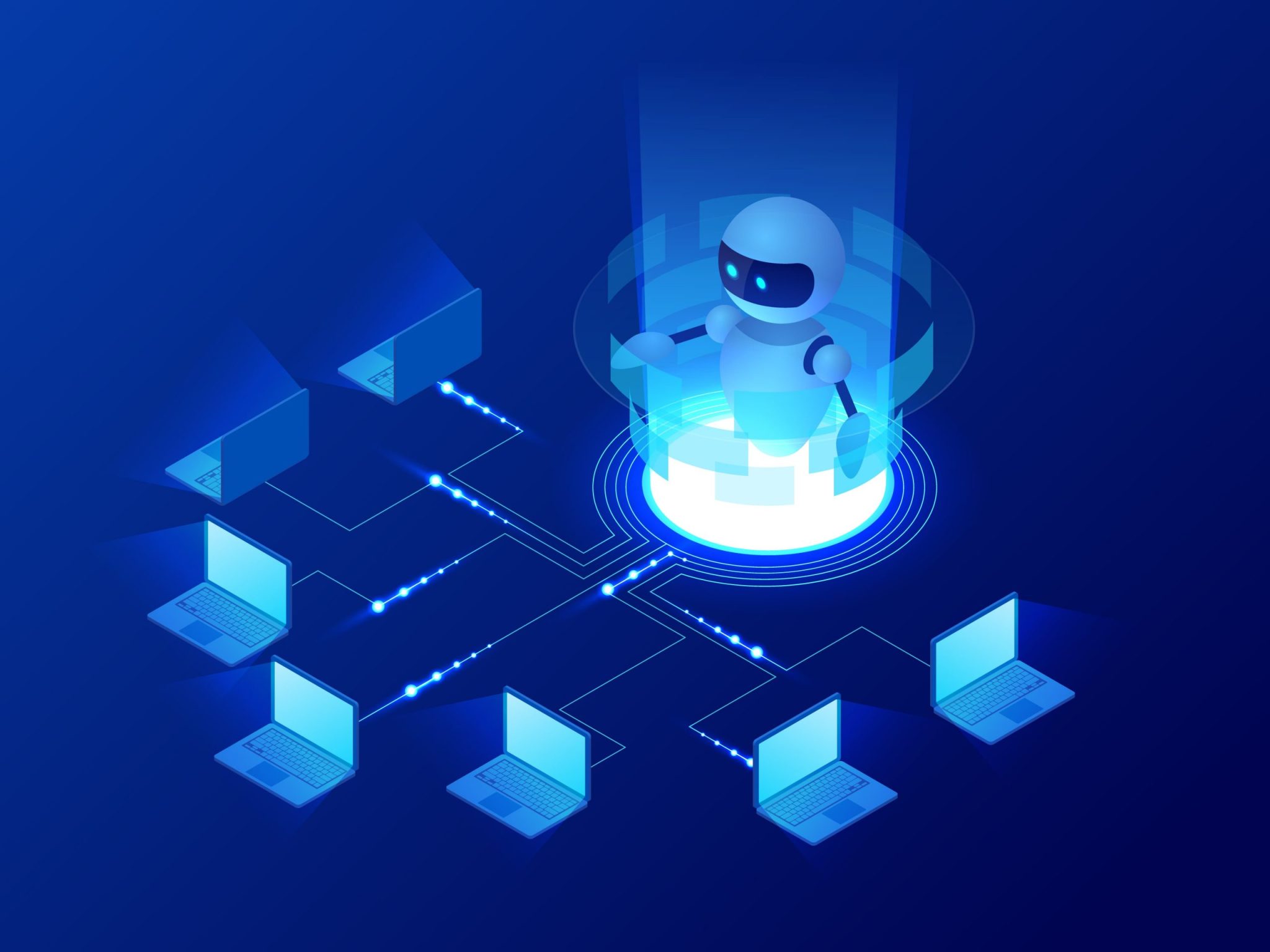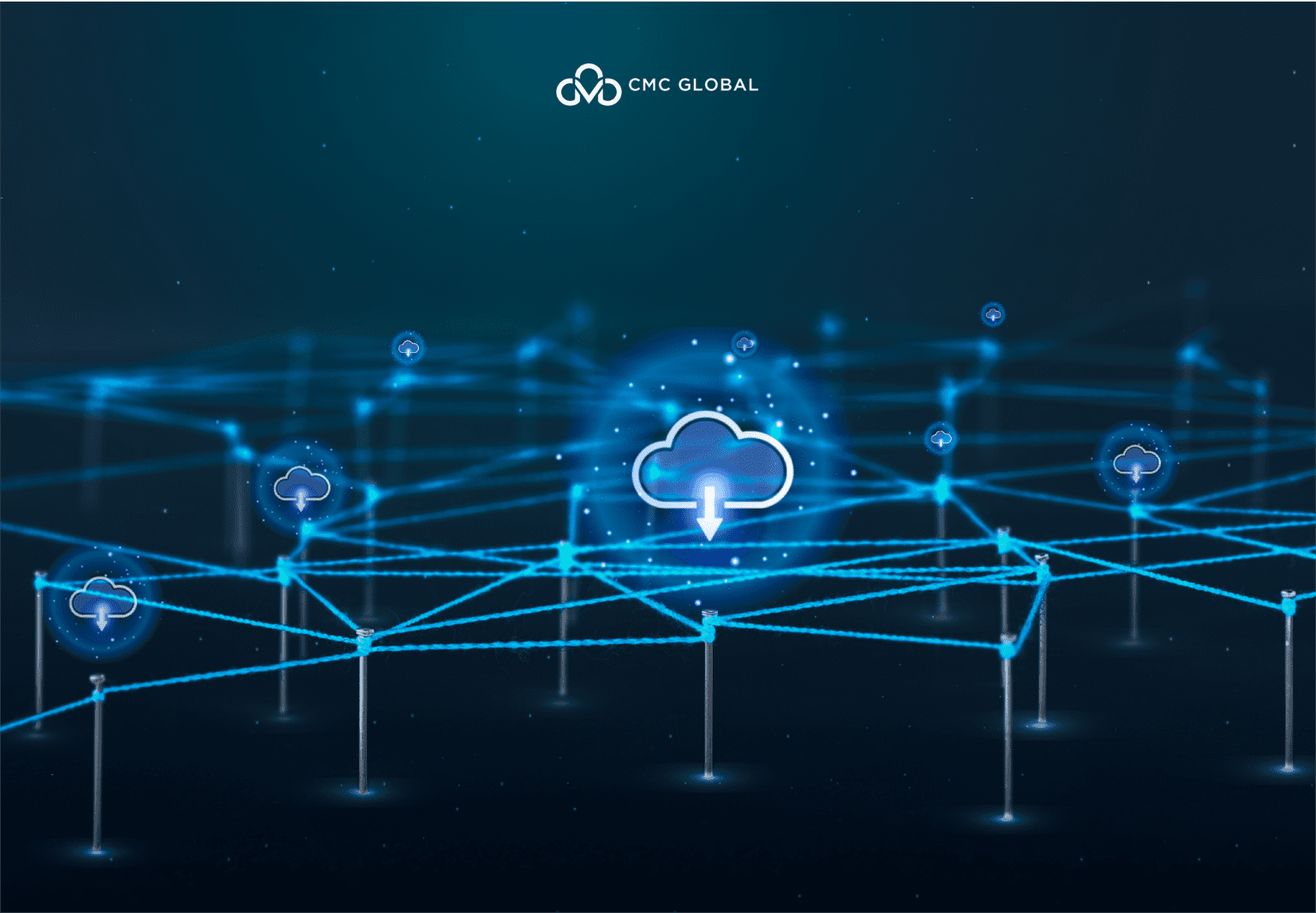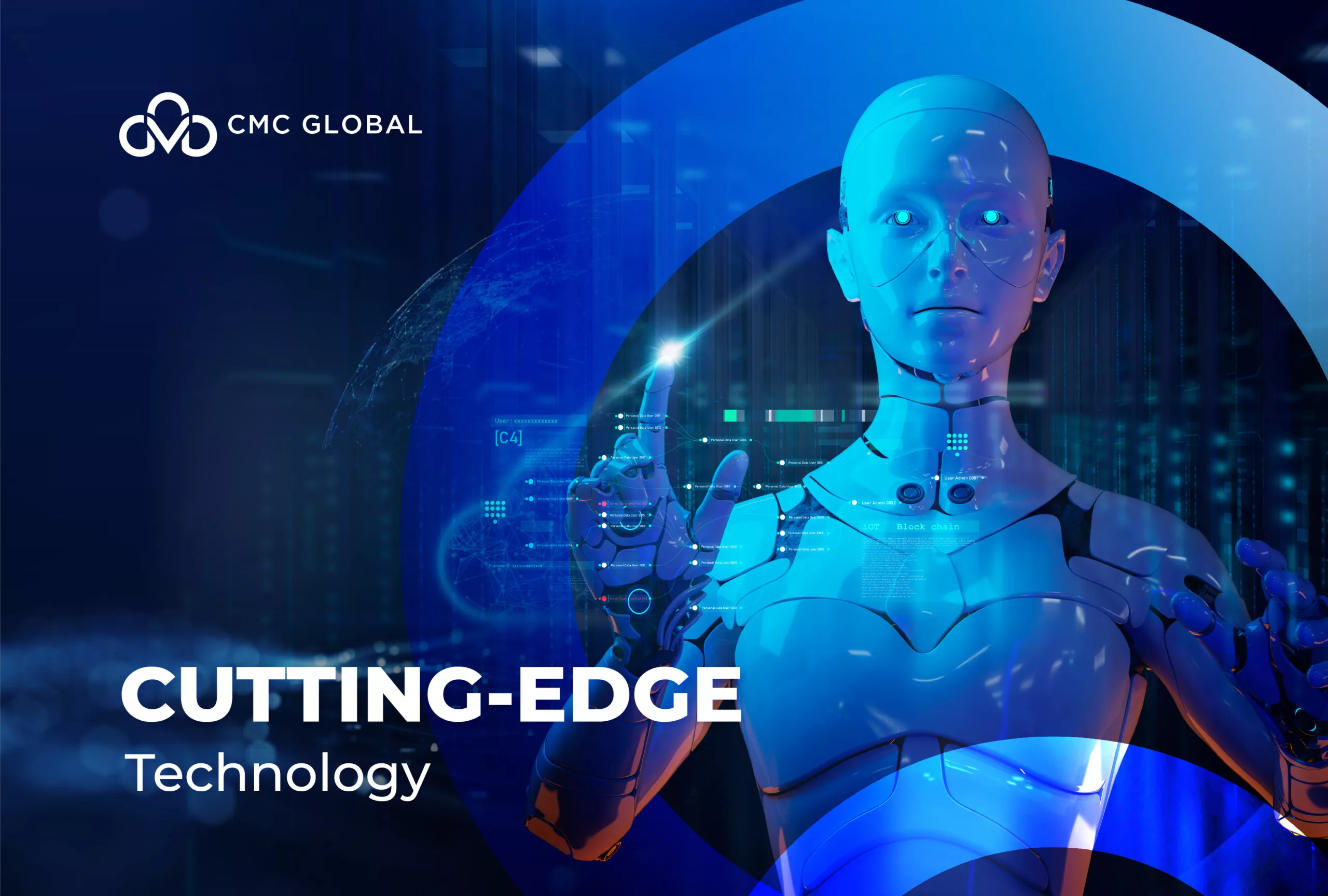The market for RPA is undoubtedly growing at an extremely rapid rate as incumbent vendors are racing to expand their platforms and service offerings. Thus, it is important that clients keep abreast of the current climate in the robot world. Today, we have got our hands on the latest ranking to give you a comprehensive breakdown of the best RPA platforms in 2020.
In recent years, Robot Process Automation (RPA) is no longer a stranger to the tech world and has been making its way into various industries, namely Banking and Finance. This popularity can be attributed to the fact that RPA relieves manual labor and organizations of mundane and repetitive tasks by using software applications (robots or bots). Besides its accuracy and efficiency, this technology is also highly versatile and adaptive, making RPA one of the most appealing hi-tech adaptations for companies of all sizes.
The Context
According to Gartner, the RPA industry has the fastest growth rate in the global enterprise software market and will appear in some form in the operation of 85% of large to very large corporations. Over the next two to three years, the market will certainly continue to mature and consolidate.
There is a wide array of RPA software providers on the market to choose from, each with different services and solutions. To compare the top providers, in June 2020, Gartner published its latest Magic Quadrant for Robotic Process Automation following last year’s report. According to the publication, the ranking for the top 16 RPA platforms is as follows:

- Leaders: UiPath, Automation Anywhere, Blue Prism, WorkFusion
- Challengers: NICE, EdgeVerve Systems, Kofax
- Visionaries: Microsoft, Pegasystems, Servicetrace
- Niche Players: NTT, Samsung SDS, HelpSystems, SAP, AntWorks, Jacada
The highlight of this year’s Magic Quadrant is the entrance of three new players in the RPA race, including Microsoft, SAP, and Samsung SDS. These large vendors show the upcoming changes and the dynamic nature of the market.
Let’s take a deeper dive into each of these categories.
The Leaders
Companies who are leaders must have a thorough understanding and insights into the realities of the industry, and be reliable and influential to the market as well as to outside ventures. For the RPA market, leading companies need to understand and fulfill the demands of their customers and elevate the core RPA offerings with additional values of cutting-edge innovations in solutions and services. A market-leading vision and the ability to deliver on that vision are the cornerstones of being a leader of RPA platforms.
Four vendors that have demonstrated excellence in both execution and vision, worthy of effective leadership are UiPath, Automation Anywhere, Blue Prism, and WorkFusion. For the former three, 2020 marks the second year that they dominate the RPA industry.
UiPath
UiPath, based in New York, USA, with operations across the world, is not only one of the biggest RPA platforms on the market but also the top tech name of the moment. Thanks to their highly extensible RPA tool for automating any desktop or web apps, UiPath has a widespread reputation among large-enterprise customers. With UiPath, global enterprises can easily design and implement a robotic workforce in their operation.

The greatest strengths of UiPath are:
- Robust Partner Ecosystem: UiPath has more than 250 technology partners, more than 1.5 million downloads, and a network of more than 750,000 developers, making up one of the largest hi-tech communities in the world.
- Operations: UiPath has devoted significant resources to helping customers build and scale up RPA programs with free community versions and a continuous focus on learning resources, online training, and an active developer community for crowdsourced knowledge sharing.
- Product Portfolio: Besides its signature orchestration engine, accelerator packages, and persona-specific developer experiences, the latest UiPath technologies include process discovery, Task Capture recorder, analytics via UiPath Insights, and improved AI fabric components.
Automation Anywhere
Automation Anywhere, based in San Jose, California, US, with an exclusive focus on RPA, is another widely sought-after vendor for large-enterprise customers. This platform ties with UiPath and Blue Prism as one of the most visible players in the RPA industry, making extensive marketing and customer engagement efforts. Combining conventional RPA with intellectual elements like language understanding, Automation Anywhere is among the leading innovative RPA platforms.

Significant features include:
- Transparent and Competitive Pricing
- Product Portfolio: The A2019 RPA is boosted by an intuitive multi-persona user experience, guided navigation, reusable ML libraries, strong native security, and an intuitive analytics dashboard, enabling robust cloud delivery with minimal maintenance overheads.
- Innovation: namely IQ Bot, process discovery capabilities, analytics, and native security vaults, as well as its broad-function partner ecosystem.
Like many of its fellow leaders, besides RPA platforms, Automation Anywhere also offers automation certification services. With multiple levels of competence, their qualifications are considered one of the most trustworthy references in the field. In December 2019, CMC Global acquired 10 RPA Automation Anywhere certificates, proving our capacity to deploy automation projects.
Blue Prism
Based in Warrington, UK, offering services in 170 countries, Blue Prism focuses on enterprisewide deployment since day one. With a flow chart like a design tool, Blue Prism RPA allows businesses to automate various processes, cutting costs and increasing agility at the same time. It strikes a fine balance between the democratization of automation development and the governance tooling needed for success in the long run.

Other strengths to Blue Prism’s software are:
- Product portfolio: Blue Prism utilizes preconfigured objects to identify the correct integration interfaces, a graphical, Visio-based development environment along with technical developer-friendly editors. Its Cloud includes a set of pre-integrated tools, including OCR with ML, and natural language processing.
- Partner ecosystem: more than 200 partners in a well-developed implementation, technology, and consulting ecosystem
- Industry strategy: being one of the first vendors to describe RPA as a “market”, Blue Prism has a strong vertical strategy with industry-focused experts, campaigns, website navigation, and partners. This has resulted in 42 industry solutions, with a large number of customers across almost all industries.
WorkFusion
WorkFusion has made a breakthrough compared to last year’s ranking where it was categorized as a Visionary. With strong backgrounds in machine learning and AI research, this is actually a crowd-computing platform. WorkFusion’s RPA leverages its Process AutoML technology to offer automation in the process of monitoring of data feed, eliminating the time-consuming and costly traditional data science.

There are several plus points to WorkFusion:
- Product Portfolio with an AI focus: sophisticated ML capability prepackaged, pre-trained for specific use
- Product Strategy: WorkFusion’s product includes an integrated BPM canvas that enables developers to coordinate automation, with clear looping and ML elements. Powerful analytics technology can drill down into individual cases and identify the causes of errors that are affecting ML and process execution.’
- Innovation: strong AI features, automated ML capabilities, cloud-based RPA, multiple analytics dashboards configured for ROI tracking, capacity planning, and SLAs.
The Challengers
Challengers in a market can attract a certain number of loyal followers, albeit less than that of the leaders. They have demonstrated sustained excellence in execution and amassed a significant following, which is hard to achieve in this new and still-evolving market. In the long run, with aggressive and innovative strategies for business expansion, challengers can evolve into leaders, or visionaries if they are willing to give up growth for new features.
The Challengers are:
NICE

NICE maintain its challenger title from the previous year, with dominating workforce engagement management (WEM) capabilities in its RPA tool. NICE’s roadmap for the future focuses on new architecture optimized for the cloud, with a direct click-to-automate feature and AI-driven guided navigation. The company’s specialties include:
- Product portfolio: strength in attended and unattended RPA capabilities, a citizen-developer-friendly UX, a signature NICE Employee Virtual Attendant (NEVA) for delivering process/task discovery and predictive analytics with multiple additional built-in capabilities.
- Aggressive Pricing Policy
- Business model: NICE targets large-enterprise customers organizations with more than 1,000 employees and more than $1 billion in revenue.
EdgeVerve Systems

EdgeVerve Systems, a subsidiary of Infosys based in India, also returns as a Challenger this year. The company offers a wide variety of RPA tools, which together provide a single automation platform that uses process automation combined with process discovery (AssistEdge Discover) and native AI. This RPA platform is known for:
- Product Portfolio: EdgeVerve has a multifunction RPA platform, including process discovery, test automation, and specific industry and horizontal business process templates. Its orchestration/ dashboard feature also provides web-based monitoring of multiple bot deployments.
- Customer Service and Support: EdgeVerve offers end-to-end implementation, including governance of its automation solution, using a wide array of accelerators, resulting in stable, secure, and scalable automation. Its expertise in native AI capabilities and client partnerships, along with its responsive support for establishing an automation center of excellence is also widely praised.
- Business Model: EdgeVerve offers verticalized automation as a service with flexible pricing models, including pay-per-use, gain-sharing, and outcome-driven models.
Kofax

This year, Kofax has become a challenger compared to last year’s ranking as a niche player. Its automation tool is considered one of the most efficient RPA platforms on the market, with embedded AI to acquire, enhance and deliver information from any application or data source.
- Product Portfolio: Kofax’s capabilities do not limit to RPA but also include intelligent document ingestion, ML, process discovery, an intelligent business process management suite (iBPMS), and analytics, culminating to one of the best end-to-end automation.
- Document Processing: Each Kofax bot can process 10,000 pages per year.
- Innovation: What’s unique about Kofax’s virtual desktop integration is that its RPA platform ingests the UI into a centrally managed container, which emulates an application without the need for a remote desktop on an agent desktop.
The Visionaries
Though they may not obtain the most prominent mainstream presence or name recognition right now, Visionaries are the innovative fuel that drives the industry forward. Besides their expertise, visionaries must have an insightful outlook of the present and future of the market in order to draw up a clear vision and strategy for further growth. For the RPA market, being a Visionary means that that the platform tends to invest in cutting-edge RPA technologies that are not yet adopted or available for mainstream enterprise customers.
This year, there are three Visionary vendors in Gartner’s report, including a startup – ServiceTrace, and two large vendors – Pegasystems and Microsoft.
Microsoft

This is the first year Microsoft made it to Gartner’s RPA Magic Quadrant. Being one of the biggest tech corporations there is, Microsoft does not need any introduction for its reputation as a Visionary. In terms of RPA platforms, the company has just acquired Softomotive (last year’s niche player), whose technologies will certainly help Microsoft’s Power Automate products take off. This RPA vendor is highlighted for its broad set of technology capabilities, competitive pricing and promising innovations.
Pegasystems

Similar to the previous year, Pegasystems is a Visionary. Though marketed as a stand-alone, Pega’s RPA also comes with complementary iBPMS, multi-experience development platform (MXDP), CRM, and LCAP capabilities, foreshadowing a future of integration for these technologies. With such a versatile product portfolio, strong partner ecosystem, widespread geographic presence and cutting-edge innovations, this RPA vendor is very attractive to large enterprises.
ServiceTrace

The company demonstrates a strong vision with its RPA platform which focuses on delivering a secure end-to-end environment and allowing customers to manage outsourced bots. The platform differentiates itself with a BPM-driven process modeling which enables overall management and direct process-mining capabilities. It has also been praised for ease of development, ease of installation, attentive customer service, and top security.
The Niche Players
As the name suggests, niche players typically emphasized a specific area or subset of the market. Because of their relatively smaller size, Niche Players are often the best choice for buyers with particular demands. Their offerings typically include specialized expertise, focused support practices, flexible terms and conditions, lower costs, and greater dedication to a particular market segment and its customers.
According to Gartner, this year niche RPA platforms are:
NTT

HelpSystems

SAP

AntWorks

Jacada

Samsung SDS

Samsung SDS is arguably one of the highlights of this category. Part of a huge international corporation, the Korean software provider is a rising star in this vibrant market. Thanks to its RPA tool which integrated many high-tech innovations such as process discovery, chatbot, integrated OCR, intelligent document ingestion, native AI, and the signature “headless bots”, Samsung SDS provides a top-notch customer experience to its buyers. This RPA platform is poised to join the ranks of Visionary or Challenger RPA platforms in the near future.
In December 2019, CMC and Samsung SDS joined forces for a comprehensive strategic investment contract. This strategic investment agreement confirms the trust Samsung SDS has put in CMC and is evidence of the capacity of Vietnamese technology companies in the trend of globalization.

As the flagship member of CMC Corporation, CMC Global takes great pride in our RPA competence. Besides our Automation Anywhere Certificates, we also gather the top IT talents who are well-versed in automation technology. These achievements show our tireless determination in strengthening our automation capabilities to bring about the best RPA services to our clients.




